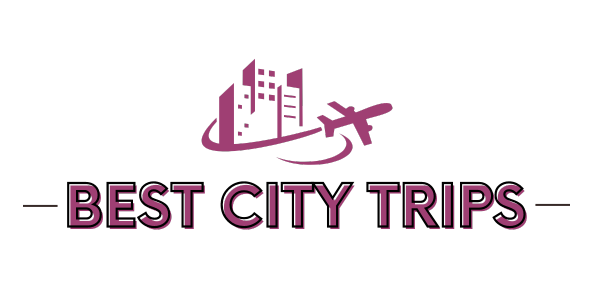When it comes to nursing, there are unlimited career options, and they are not just limited to a hospital setting. But what is actually out there? Nurses can pursue multiple career options outside the hospital and help the community. Now nurses do not have to spend long hours in hospitals and can find jobs in settings other than traditional hospitals and clinics.
Non-traditional nursing careers
Alternative career options for nurses are plentiful. There are many options for nurses, ranging from school nurses to nurse researchers and more. Life as a registered nurse in traditional hospitals may not be for everyone, but nurses can find many other opportunities to help the community and make a difference.
Almost all these alternative nursing career options require a bachelor’s degree in nursing from reputed universities like Holy Family University. A second degree hybrid BSN is a full-time program perfect for students with a bachelor’s degree who want to transition to the nursing profession. Find out whether Holy Family University’s online second degree BSN is right for you.
Outpatient Nurse
Outpatient nurses are one of the most obvious alternatives to inpatient hospital nurses. These nurses can share their skills and expertise in clinics or primary care centers. Daily tasks for these nurses will vary depending on the location and specialization of such clinics. Usually, outpatient nurses are expected to check vitals, educate patients, collect samples for testing, and more. Patients are in less critical condition and typically involve routine checkups. As the care is limited, the volume of patients is much higher for outpatient nurses than in-hospital nurses.
School Nurse
If someone likes working with children, becoming a school nurse is a good option. School nurses can work in private and public schools, from primary schools to universities. These nurses typically deal with common illnesses like colds, fevers, and minor injuries. They also care for children who need additional assistance taking specific medications throughout the day. School nurses have a consistent schedule, usually from nine to five. These nurses work independently and have a broader knowledge of multiple health issues.
Nurse Educator
Being a nurse educator allows nurses to work in helping the community without restricting themselves to a specialization such as becoming an ER nurse, pediatric nurse, or clinical nurse. Nurse educators help the population by educating the next generation of nurses, which is especially critical in the current nursing shortage. Nurse educators usually spend a few years in clinical or hospital settings and then move on to teaching nursing students in universities or teaching hospitals.
Nursing Home Nurse
Nursing homes are a good option for nurses who like the structure of working in a hospital setting. Nursing home nurses, over time, form good relationships with their elderly patients while working with them routinely. Compared to a regular hospital nurse position, nurses in nursing homes also perform administrative and supervisory duties. They administer medications, manage treatment plans, and may have to take care of most of the daily tasks for patients, as the elderly may be utterly dependent on nursing care. It is certainly rewarding, but a full-time position where nurses may have to spend 24/7 in nursing homes.
Public Health Nurse
With how things are right now, the demand for public health nurses has never been higher. Communities appreciate the efforts public health nurses put into educating the communities and promoting health education. Instead of working with individual patients, public health nurses work towards improving the whole community’s health. A public health nurse’s usual tasks include creating campaigns to educate the community about health issues, determining risk factors in a population, and more. These nurses do not work with hospitals but are affiliated with government entities, community clinics, non-profit organizations, or schools.
Insurance Assessment Nurse
Insurance nurses can use their medical and clinical knowledge in an insurance company. They can take up diverse roles in the company with many different responsibilities. Insurance nurses’ responsibilities can include giving wellness advice to clients, reviewing insurance claims, acting as a go-to person between patients and healthcare providers, to name a few. This alternative nursing role requires strong communication skills and high proficiency in statistics and math.
Rehabilitation Nurse
As the name suggests, rehabilitation nurses work in rehabilitation centers where patients require long-term treatment or care. These patients may be in rehab centers because of accidents, strokes, heart attacks, or other injuries. This is a gratifying role as nurses see their patients return home after weeks and months of therapy. Nurses who wish to work in rehabilitation centers will need a specialized certification from an appropriate governing body.
Nurse Researcher
Research and healthcare organizations often hire nurses for their clinical expertise to assist in their medical trials and studies. Nurses in research usually work with patients enrolled in the trial programs; they assess their vitals and continually monitor their health. Such an alternative nursing position is ideal for those who like the scientific aspects of nursing more, along with managing patients. Many research nurses also hold positions in pharmaceutical companies and teaching hospitals.
Cruise Ship Nurse
Cruise ships need to have medical personnel for their passengers. On a cruise ship, doctors, physicians, and nurses are expected to treat chronic medical conditions and any urgent issues. Nurses on a cruise ship get to travel, making it a lucrative opportunity. These nurses are more independent and skilled as they work in a much different environment from a conventional hospital. Cruise ship nurses must be away from home for days, so it is a very unconventional schedule.
Nurse Manager
Working as a nurse manager is ideal for any nurse who likes managing a team. Nurse managers manage a group of nurses in an organization while working to create schedules, manage clinics, perform staff reviews, and more. It is a leadership role for nurses passionate about improving the healthcare industry and helping people. This is a good alternative nursing career for nurses with solid communication, business acumen, leadership, and conflict-resolution skills outside a hospital.
Wrapping up
Aside from working in a traditional hospital setting, there are countless opportunities for nursing graduates. You can find many options that suit your skills and interests as a nurse. A second degree in BSN will transit your journey into alternative career paths in the noble nursing profession.
 BESTCITYTRIPS
BESTCITYTRIPS




